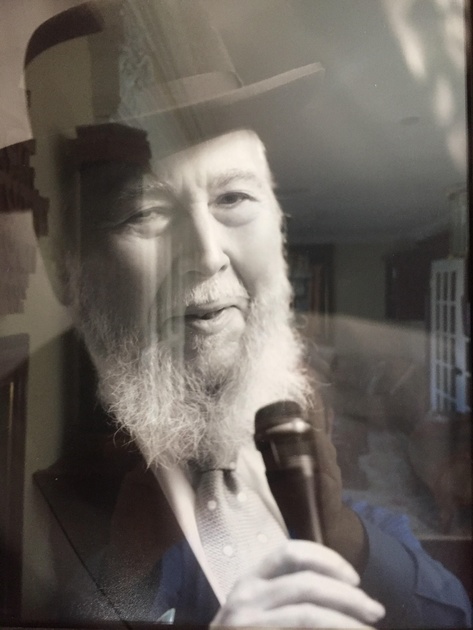
Our Gemara on Amud Aleph through Beis tells us that though technically a hen can lay an unfertilized egg at any time, we assume the rooster׳s presence would keep the hen waiting and desirous of the rooster. Hence she will wait to lay her eggs after she has a chance to mate with the rooster. The Gemara discusses the exact circumstances of the rooster’s presence, such as being able to hear the rooster's crow.
In Hilchos Yichud, there is a special circumstance where a married woman may be alone with a man other than her husband, known as ba’alah bair, her husband is in the city. The simple explanation is that since her husband can come home at any time, both the woman and man whom she is with would not feel tempted. However, if that would be the case, then if her husband would not know where she is, or if she was in a different area than her home and was in an area in which her husband did not have the ability to show up unannounced, the heter would not apply.
Yet some poskim such as the Chida and the Chazon Ish hold that the heter of ba’alah bair still applies even when the husband does not know where she is, so long as he is in the city (see Sefer Gan Naul http://www.toratemetfreeware.com/online/f_02536.html#HtmpReportNum0011_L3 ) . Why is this sufficient? Because the heter of ba’lah bair is not merely a fear of discovery but rather an attachment. That is, the woman would be less likely to be interested in another man when her husband is in proximity. If so, it is irrelevant if the husband knows where she is.
I would like to suggest a somewhat creative proof from our Gemara. But first, let us study the Gemara in Eruvin (100b) which tells us that we can learn the art of romance and love from the rooster, in how he tries to appease the hen:
Prior to mating, it spreads its wings as if to say this: I will buy you a coat that will reach down to your feet. After mating, the rooster bends its head as if to say this: May the crest of this rooster fall off if he has the wherewithal and does not buy you one. I simply have no money to do so.
We see that the Gemara already set a precedent that the instinctive emotional process of romance and appeasement is similar between the humans and the roosters.
As an aside, it is interesting to note that the rooster exaggerates his status and then apologizes that he cannot deliver as much as he promised, and the Gemara considers this to be “derech eretz”. Apparently, in courtship showing your best side and pledging to do something out of reach is considered normal. Of course, this is different than outright lies and misleading, which is immoral and a bad idea for building future trust. The rooster is merely trying to show his best side by expressing his aspirations, which he hopes he can keep, but does not always do so.
Regardless, our Gemara says the hen will not lay an unfertilized egg so long as it remains aware and attached to its mate’s presence.
One lesson from this halakha is that attachment and presence count more than checking up. It is the attachment to her spouse that keeps her from temptation, not his checking up. Often spouses, especially spouses who were betrayed, end up checking their spouse’s cell Phones and emails obsessively. While who can blame them, it is still important to keep in mind that trust is a state of being, and it’s about a feeling, and not anything that verifying will actually solve. If you don’t feel close to your spouse, that is the real problem. And if you feel close, you wouldn’t need to be checking up.
L'zecher Nishmas Abba Mari רב חיים יהושע בן אברהם Rabbi Chaim Feuerman Ed.D Today is his Yahrzeit
Translations Courtesy of Sefaria, except when, sometimes, I disagree with the translation ![]()
Do you like what you see? Please subscribe and also forward any articles you enjoy to your friends, (enemies too, why not?)
 Previous
Previous

